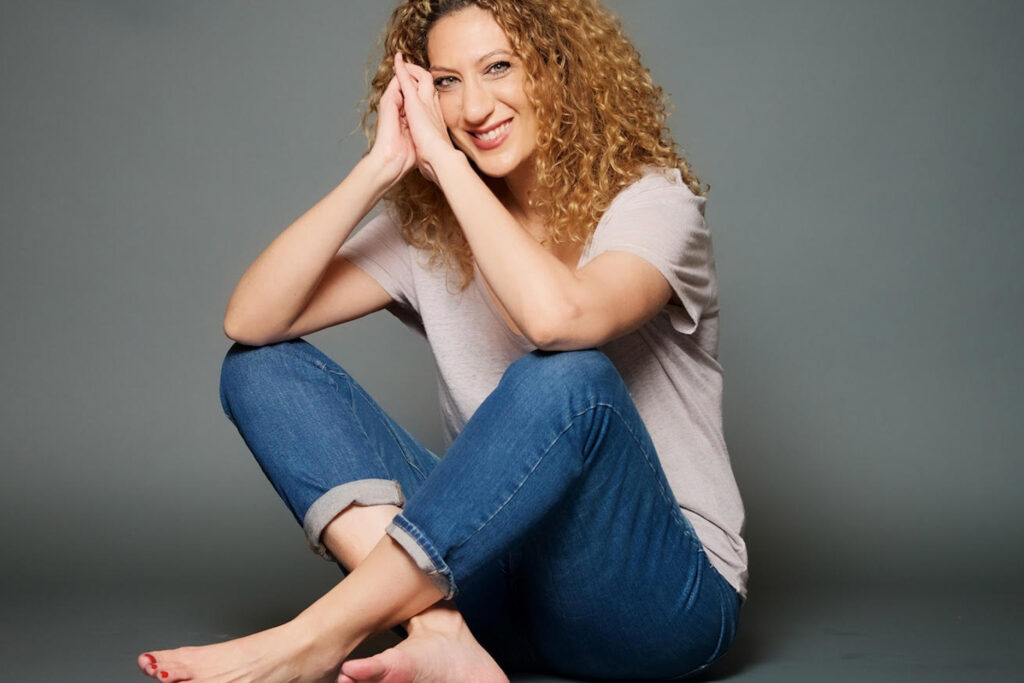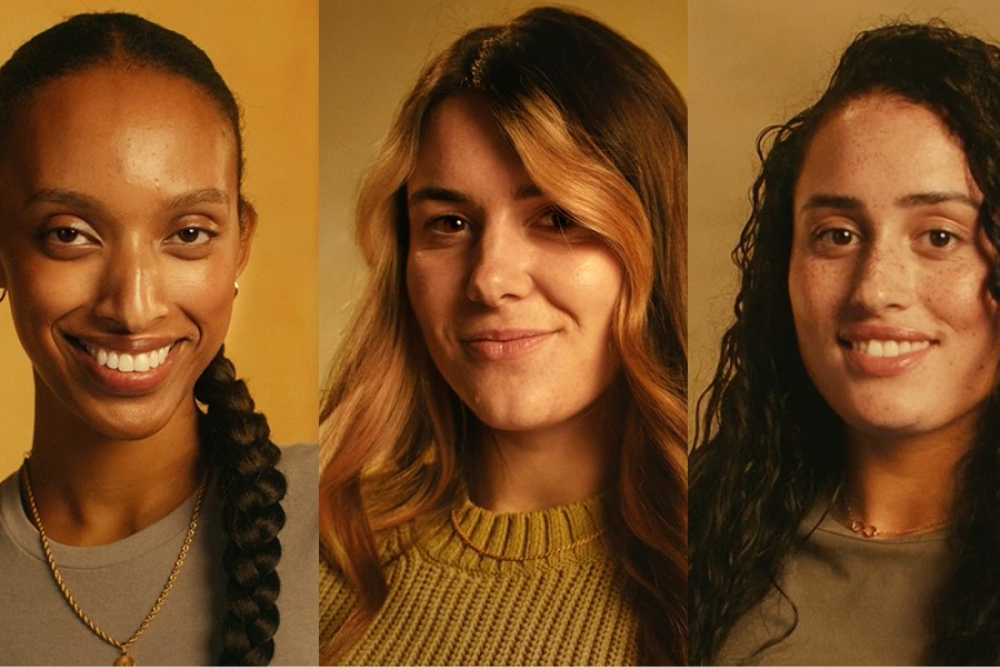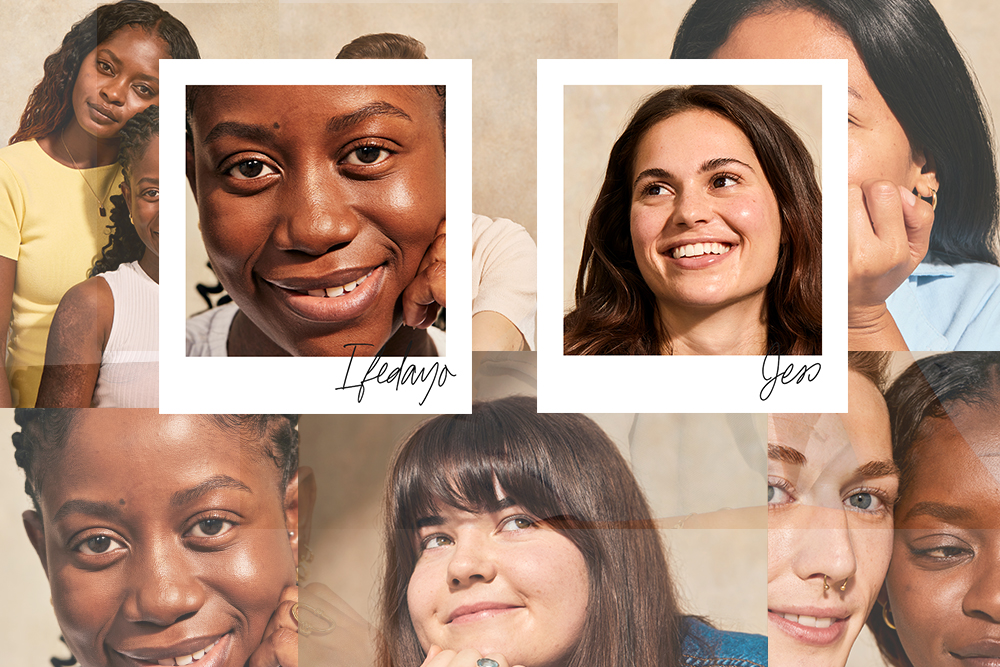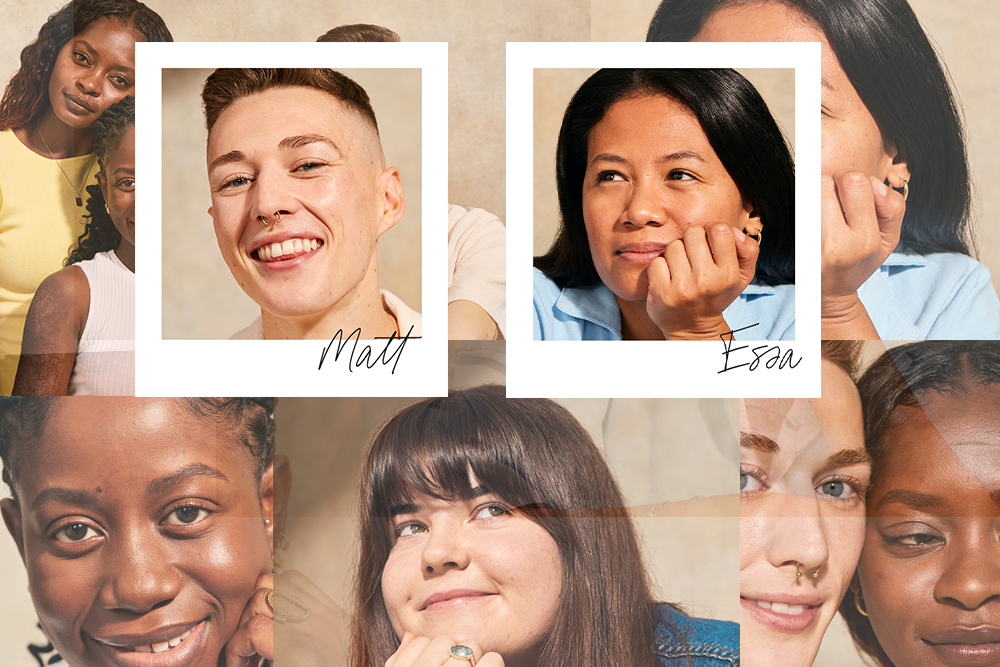Just For You: Meet The Faces Of The Skin + Me TV Advert

The Dose caught up with Lulu Socratous, better known as LuluandMe.co on Instagram, where she built her community for women recovering from cancer. We sat down with Lulu to discuss the importance of beauty, fashion and lifestyle for those in recovery and how her feed became a place for survivors to connect and support one another
Please tell us a little bit about you, and what LuluandMe.co is all about.
I started what became Lulu and Me during my recovery from Neuroendocrine cancer (NET), which for me was present in my pancreas. During treatment, I knew that I was doing all the right things. I had doctors and nurses around me telling me ‘this is what we’re doing, this is what to expect and what will happen’. As terrifying as it was, I understood my position, and what was happening to me. When treatment ended and I moved into recovery, I felt like I should go back to normal. But I didn’t know who I was any more.
Lulu and Me was originally ‘My Cancer Style Guide’ documenting how I used fashion and beauty to feel like myself while in recovery. I wasn’t talking to anyone about how I felt. I felt very alone, and like I should feel better than I did. Eventually My Cancer Style Guide became Lulu and Me, with a real emphasis on the ‘and me’, as it became apparent how many other women out there felt the same way. Lulu and Me has become a place for women, not just me, to share their experiences, struggles and product recommendations. For me, the real work was done post-treatment, so I wanted to create a space to connect and learn with other women going through similar experiences. I didn’t know when I was diagnosed, or even during treatment, that the healing process would be long-term and non-linear – there are ups and downs throughout. Lulu and Me gives women in that position a support network; I think social media has really come into its own in serving the cancer community.
Beauty was always important to me, even before it became a central part of my recovery. In fact, it actually led to my diagnosis. I was a regular customer at a Space NK in London, and they had just hired a new manager. I popped in to introduce myself, and also to ask him about clearing the spots I had on my brow line and cheeks. He looked at me, and said there was nothing in the shop that could help me. He said that it wasn’t acne, but was likely a problem with my gastric system. I was really surprised, as that was the first time I thought that there might actually be something wrong. I had other symptoms, but had written them off as work-related stress. I called up Bupa and arranged to see a gastric doctor – thinking it was probably IBS (I was only 33!) – and I was diagnosed with NET pancreatic cancer within a few days. That manager, in many ways, saved my life. I was already at stage three, going into stage four. I never would have seen a specialist if he hadn’t planted the seed that helped me connect the dots.
How did NET pancreatic cancer and treatment affect your physical and mental health?
During recovery I felt physically disconnected from my body. It didn’t operate as I remembered it, and it has taken a long time to get back to how it was. The operation I had was major, and the recovery involved learning how to move again, how to eat differently and help my body heal. Our skin often suffers during treatment; chemotherapy dries your skin out completely, spots are common as well. I could never apply enough moisturiser, and it affected everything – my hair, my face, my body. For me, as I had gastric cancer, my entire digestive system was shot, and I wasn’t absorbing nutrients properly, which showed up on my skin.
After treatment, my gut health was still terrible. I struggled with spots as my skin was producing too much sebum, leaving me with congestion. My response was to use aggressive exfoliating skincare, which was actually stripping my skin of nutrients and making it worse. Eventually I realised I had to give my skin and body nutrients instead of taking them away.
Mentally I also felt disconnected from who I had been. I was very career focused with a partying lifestyle before treatment, and I felt like I ought to go back to it. Except I was realising that I physically couldn’t, and also that I didn’t really want to. I was depressed for around a year after treatment, which was when I started Lulu and Me. I was processing what had happened to me; I didn’t know how to navigate my new body, and I didn’t know how to put it all back together.
When everything you know about your body has changed, it’s important to build yourself back up. A big part of that for me was beauty and fashion. Self perception is so important to confidence and self-esteem, my focus became about the inside and outside working together.
What tips do you have for those going through cancer treatment or recovering from it?
Ask questions of professionals – Putting yourself back together after cancer or other types of trauma is a lot to take on. Don’t expect yourself to have all the answers. Reach out to experts, even if it’s just on social media – there are so many experts on cancer, recovery and mental wellbeing all making free content on platforms like Instagram these days!
Seek out people going through similar experiences – Lulu and Me is all about helping women recovering from cancer, and there are so many support groups and charities out there for what you’re going through.
Take it back to basics – Focus on building healthy habits, nourishing your body, hydrating and taking care of yourself as you would a child or a dear friend going through the same thing.
Go slow in recovery – If there’s one thing I would say to myself if I could go back, it would be “it’s okay to go slow”. I tried to go back to my fast-paced lifestyle, only to realise my body wasn’t ready. I had to learn to be kind, slow and patient with myself. I was in recovery – I wasn’t ‘fixed’. Get in tune with yourself, and ask ‘what is it I need?’ In recovery, it takes time, more than you realise, to heal, so you have to take it slow.
Wear SPF and take probiotics – This is my number one piece of advice for anyone recovering from cancer! It’s so important to care for your skin as the largest organ in the body, and to heal your gut from all the treatment. We’re learning more and more that a healthy gut is the foundation of our physical and mental health.
Look at what you really want from life – Cancer, for me and from others, is a magnifying glass. Lying in the hospital or resting during recovery gives you a lot of time to think. It amplifies the good and bad, and forces you to decide what you do and don’t want to keep in your life. For me, healing wasn’t just from cancer. Cancer made me stop and realise I had to look after myself. First it was just part of my recovery, but I wanted to keep going. Looking after myself feels good, I can’t go back to the fast paced burn out place I was before.
Do less – I’ve learned that doing less and taking your time is okay. I like taking the time to enjoy the process of doing everyday things, whether it’s a long bath, making coffee or walking to the shops. I slow down and notice the little things in life. Once you integrate a slower pace to your daily life, where you can, it will make a difference.
Schedule rest – Even after recovery, I have chronic pain and chronic fatigue. I know this, so I schedule time for rest within my week, to prevent flare ups. I’m taking care of myself all the time, not just when my body forces me to.
Be kind to your body – I eat lots of fruit and vegetables, and force myself to do a little fitness most days (even when I don’t want to) because I always feel better after.
It’s been a journey, and has taken a long time to get here: the seven years of recovery, unlearning habits and coming to terms with lots of life experiences. It becomes a story as you move further away from it. I’m a different person to who I was just before treatment, at first I had to grieve the loss, but I feel more myself now than I have ever been. I stripped it back, and I took away the layers of what I thought I wanted. Before, I was lost between myself, what I wanted to be, and what society wanted me to be. I removed the toxic people and toxic job from my life, and reevaluated what I wanted, away from what I thought I wanted. I’m happier than I’ve ever been and excited for the future.



